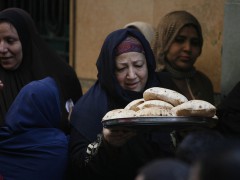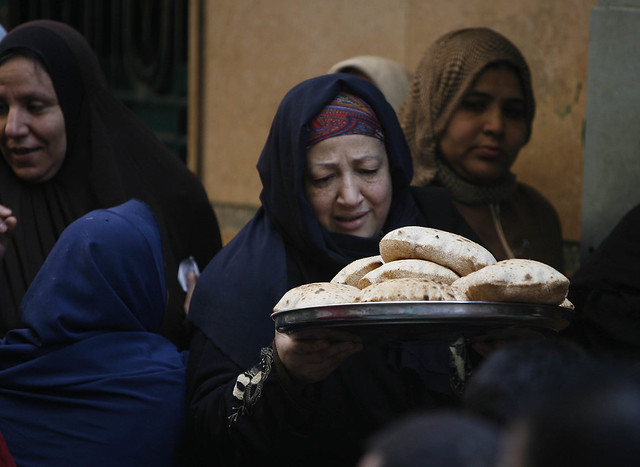Egypt: International Benefits – Local Bane

It’s no secret that the economic situation is Egypt has been in constant decline since the January 25th revolution. It is easy to blame this downturn on the unstable political situation; but the fact remains that the Egyptian economy and resources have been mismanaged for the last six decades.
Economic mismanagement manifests itself in various ways that all permeate the lives of countless Egyptians struggling to survive despite the harsh conditions. International trade remains one of the main staples of the Egyptian economy. Egypt is party to various bilateral trade agreements with more than 50 countries worldwide.
With the economic situation being what is, it cannot be disputed that international trade and what affects it has a direct impact on several Egyptians lives. But the question stands; do the Egyptian people at large feel that the forces of international trade impact their daily lives and livelihoods? And the simple answer to that is; no.
Food prices are one of the main indicators of how international trade affects the everyday Egyptian; although many food stuffs are heavily subsidized, their availability in market fluctuates based on their international price. Wheat availability is a very real denominator in which one can understand how international trade affects daily life. When the wheat is sparsely traded on the international arena it adversely affects the daily bread intake on the average Egyptian citizen. In Egypt, as in many other developing economies, bread is the most essential staple of the daily diet of Egyptians across the social strata.
Once the international price of bread rises, the heavily subsidized bread production process (96% of cost is carried by the state) gets directly affected. In the mid-2000s, after a price hike in the international price of wheat, the bread production process was severely distorted, causing a wave of bread shortage across the country. The issue of lowering barriers to trade within Egypt has been one that is exhausted by economists, as protectionism is still alive and well today. Many Egyptians are of the belief that keeping trade barriers up on many products (food items excluded) is in fact, protecting local industries and provides the basis for a more independent economy.
But in an increasingly globalizing world, and with the internet penetration more than doubling over the last two years, many Egyptians would like to see the complex system of taxes and tariffs ease off a bit in order to allow for a wider variety of goods at affordable prices.
However, many still worry about the market being flooded by goods from nations such as China that directly challenges the many budding industries that support millions of low and middle income households. Although international trade really does affect the lives of many, Egyptians today are almost exclusively preoccupied with the political situation.
It is a fact that democracy is new in the ancient land, and adjusting to its teachings will not be easy for a population of 90 million. It is also a fact that the forces of international trade are the cause of many of the economic challenges that the majority of Egyptians blame on the political situation.
Tags: Africa, Cairo, China, Economy of Egypt, egypt, egyptian, Egyptian Armed Forces, Hosni Mubarak, Rafah


